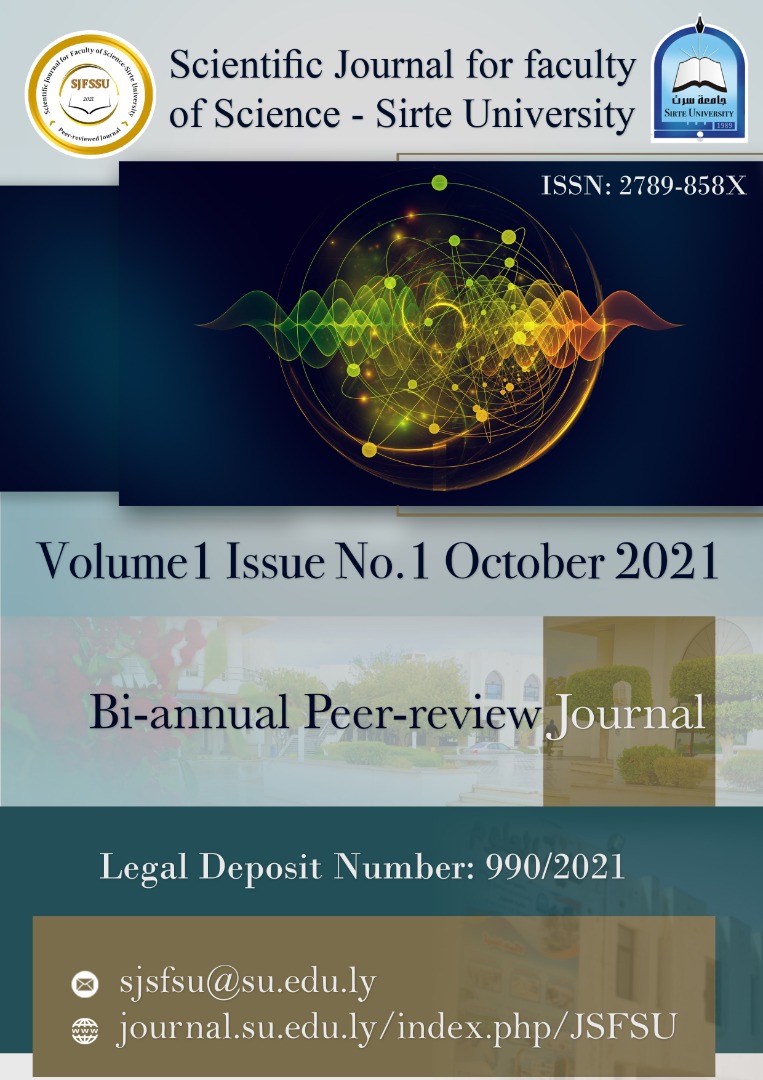Morphological Study of the Effects of Caffeine Beverages Can Cause Birth Defects on Swiss White Mice Embryos
DOI:
https://doi.org/10.37375/sjfssu.v1i1.65الكلمات المفتاحية:
Embryos, Malformations, Caffeine beverages, Mice embryos.الملخص
The current study was conducted to identify the effects of different doses of Arabic coffee, black tea and Coca-Cola syrup on the possibility of birth defects in Swiss white mice embryos. (25) pregnant female mice were used in the study, divided into five experimental groups, including the control group dosed with distilled water, and four experimental groups were dosed with concentrations (4000-2500-2000-1000) mg/kg body weight for Arabic coffee and black tea and (2,3,4,6 ml/kg) for Coca-Cola syrup; once a day, from the seventh day until the eighteenth day of pregnancy.
The results of the current study showed cases of abortion and fetal death at varying degrees and many abnormalities in white mouse embryos due to the different concentrations of the beverages used were characterized by the appearance of elongated and enlarged embryos. The elongation and deformation of the fetus, And the embryos mutated. Small embryos folded like a ball and curved in the shape of letter C, and the severity of the deformities increased by the appearance of mutated embryos resembling the body of a fish and deformed embryos similar to a water mermaid and not fully developed and the appearance of the head in the shape of a blurred triangle, as well as forward with a pointed end resembling a bird's beak, and brain deformation through depression in the posterior cranial region of the skull, and for the first time a new deformation is a cerebral Meningomyelocele in the form of a cystic tumor in the posterior brain region.
المراجع
Al-Mamouri, Rafah, Hani Abdel-Latif. (2001). The effect of alcohol on implantation of embryos and fertility in the mouse. Master Thesis, College of Medicine, Tikrit University, Iraq.
AL-Rasheedi, A.A.(2009).study of effect of energy drinks on Biochemical and histological marks in Rats. Arab. J. Chem. 2 (1):113-126.
Ashmead ,T. M.(2003).Smoking and pregnancy .J. mater. Fet. and Neon. Medic.;14:297-304.
Bech, B. H., Nohr, E. A., Vaeth, M., Henriksen, T. B., & Olsen, J. (2005). Coffee and fetal death: a cohort study with prospective data. American journal of epidemiology, 162(10), 983–990. https://doi.org/10.1093/aje/kwi317 .
Bech, B. H., Obel, C., Henriksen, T. B., & Olsen, J. (2007). Effect of reducing caffeine intake on birth weight and length of gestation: randomised controlled trial. BMJ (Clinical research ed.), 334(7590), 409. https://doi.org/10.1136/bmj.39062.520648.BE.
Bierrnacki,B.; Wofodarezyk.; B. and Minta,M.(2000).Effect of sodium valporate on rat embryo development invitro. Bull .Vet. Inst. Pulawy .,44:201-205.
CARE Study Group (2008). Maternal caffeine intake during pregnancy and risk of fetal growth restriction: a large prospective observational study. BMJ (Clinical research ed.), 337, a2332. https://doi.org/10.1136/bmj.a23329.
Higdon, J.V.; and Frei, B.( 2006) Coffee and health:A review of recent human research. Crit Rev Food Sci Nutr.;46(2):101-123.
Fazal ,A.; and Jalali ,M. (2002). Experimentally – induced exencephaly and spina bifida in mice. Archives of Iranian-medicine,5(3),179-183. https://www.sid.ir/en/journal/ViewPaper.aspx?id=13074.
Greenberg, J. A., Boozer, C. N., & Geliebter, A. (2006). Coffee, diabetes, and weight control. The American journal of clinical nutrition, 84(4), 682–693. https://doi.org/10.1093/ajcn/84.4.682 .
Grosso, L. M., & Bracken, M. B. (2005). Caffeine metabolism, genetics, and perinatal outcomes: a review of exposure assessment considerations during pregnancy. Annals of epidemiology, 15(6), 460–466. https://doi.org/10.1016/j.annepidem.2004.12.011.
Hammoudi, Hani Malallah. (2005). Study of the effect of paracetamol (acetaminophen) on the embryonic development of the Swiss white rat Mus musculus. Journal of Education and Science, Volume (7), Issue 1: 165-149.
Hey E. (2007). Coffee and pregnancy. BMJ (Clinical research ed.), 334(7590), 377. https://doi.org/10.1136/bmj.39122.395058.80.
Jana, N., Vasishta, K., Jindal, S. K., Khunnu, B., & Ghosh, K. (1994). Perinatal outcome in pregnancies complicated by pulmonary tuberculosis. Int J Gynaecol Obstet, 44(2), 119–124. https://doi.org/10.1016/0020-7292 (94)90064-7
Matijasevich, A., Santos, I. S., & Barros, F. C. (2005). Does caffeine consumption during pregnancy increase the risk of fetal mortality? A literature review. Cadernos de saude publica, 21(6), 1676–1684. https://doi.org/10.1590/s0102-311x2005000600014
Ormerod P. (2001). Tuberculosis in pregnancy and the puerperium. Thorax, 56(6), 494–499. https://doi.org/10.1136/thorax.56.6.494
Padmanabhan, R., Singh, G., & Singh, S. (1981). Malformations of the eye resulting from maternal hypervitaminosis A during gestation in the rat. Acta anatomica, 110(4), 291–298. https://doi.org/10.1159/000145439
Rogwei, Y.E.; Aiguo, R.; Zhang, Le.; Zhiwen, Li.; Jianmeng, Liu.; Lijun Pei.; and Xiaoying ,Z.(2011).Tea Drinking as a Risk Factor for Neuraltube Defects in Northern China. Epidemiology. 22. (4);22:491-496.
Ullman, A., Beutsch, J. Wilber T.D. (1992). The role of drug R4486 in early miscarriage. Journal of Science, 8(7): 19-12.
Weng X, Odouli R, Li DK. (2008).Maternal caffeine consumption during pregnancy and the risk of miscarriage: a prospective cohort study. Am J Obstet Gynecol. 198(3):279.e1-8. doi: 10.1016/j.ajog.2007.10.803. Epub 25. PMID: 18221932.
Yen WJ, Wang BS, Chang LW, Duh PD. (2005).Antioxidant properties of roasted coffee residues. J Agric Food Chem. 6;53(7):2658-63. doi: 10.1021/jf0402429.















